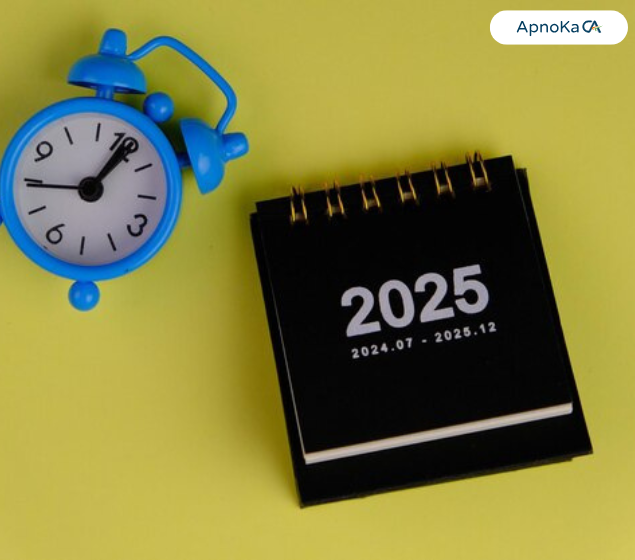# ca
12 posts in `ca` tag
.jpg)
Key Updates on Presumptive Taxation in the Income Tax Bill 2025
Small enterprises, professionals, and independent contractors would all be impacted by the substantial changes to presumptive taxation brought about by the Income Tax Bill 2025, especially under Section 58. Important adjustments include clarifications on deductible costs, conformity with tax simplification objectives, and limitations on loss set-offs. This blog examines the ramifications of these modifications, how they affect taxpayers, and practical measures for financial planning and compliance.
.jpg)
Old vs. New Tax Regime: Which Option Suits You Best for FY 2025-26?
The Indian tax system offers two regimes—old and new—each with distinct slab rates, deductions, and exemptions. This blog compares both regimes, using examples to help you decide which one suits you best for FY 2025-26. Learn how to minimize your tax liability based on your income and investments.
.jpg)
Clause 123: New Rules for Tax Deductions in 2025
The Income Tax Bill 2025 introduces Clause 123, replacing Section 80C, to streamline tax-saving deductions. This blog explores the implications of this change, how it affects taxpayers, and what it means for future tax planning. Learn about the unchanged deduction limits, eligible investments, and the simplified tax structure under Clause 123.
.jpg)
How Section 44AD Helps Small Businesses Save Time and Money on Taxes
Section 44AD of the revenue Tax Act provides a presumptive taxation structure for small enterprises in India, enabling them to report revenue based on a specified proportion of sales. This blog discusses eligibility, benefits, income computation, and how it makes tax compliance easier by eliminating the need for comprehensive recordkeeping and tax audits.
.jpg)
How to Get a Lower Tax Deduction Certificate (LTDC): Benefits and Process
This blog describes the notion of a Lower Tax Deduction Certificate (LTDC) in India, its benefits, and how to apply for it. Learn how to lower TDS on your income by filling out Form 13 under Section 197 of the Income Tax Act. Learn about qualifying requirements, needed documentation, and how an LTDC may enhance your cash flow and lower your tax burden.
.jpg)
GST Amnesty Scheme: Essential Elements & Due Dates
The GST Amnesty Scheme is a relief initiative by the government for taxpayers who have missed GST return filings or face compliance issues. This blog explains its key features, eligibility, advantages, and deadlines to help businesses take advantage of the scheme and avoid penalties.
.jpg)
e-Way Bill Compliance Made Simple: ENR-03 Advisory for Unregistered Dealers in India
This blog post describes Advisory ENR-03, which makes it easier for unregistered dealers in India to join in e-Way Bills. In order to guarantee the smooth and lawful transportation of products under GST, it covers the enrollment procedure, advantages, and important points.
.jpg)
A Complete Guide to GST Registration in India for 2024–2025
With an emphasis on Rule 8 of the CGST Rules, 2017 and the significance of Aadhaar identification, this blog offers a comprehensive reference to GST registration in India for 2024–2025. It goes over important commercial factors, the registration procedure, and the most recent upgrades.
.jpg)
CBDT Updates Form 49C: What Non-Residents Need to Know
Form 49C has received important revisions by the CBDT, and for non-residents whose income is derived from India, electronic filing is now compulsory. This blog delves into the main alterations, their effects on foreign taxpayers, and provides a step-by-step manual for online submission of Form 49C.

Section 80C Removed in 2025: New Rules and How to Stay Tax-Efficient
To make tax compliance easier, the government has eliminated Section 80C from the Income Tax Bill 2025 and merged it with Section 123. This blog examines the ramifications of this change, its effect on taxpayers, and how to adapt financial planning strategies in response.
.jpg)
Income Tax Bill 2025 vs. Income Tax Act 1961: New Utility Tool for Simplified Comparison
To make it easier to compare the Income Tax Bill 2025 with the Income Tax Act 1961, as amended by the Finance (No. 2) Act 2024, the Income Tax Department has released a Utility Tool. This application ensures improved compliance and lowers mistakes by assisting businesses, professionals, and taxpayers in understanding legal changes. Discover how to utilize this tool and the advantages it offers to different stakeholders.
.jpg)
Old vs New Tax Regime – Make the Right Choice for 2025-26
As the financial year 2025-26 begins, taxpayers face a crucial decision: Old Tax Regime or New Tax Regime? This blog simplifies the choice with real-life examples of Mr. Arun Sharma and Mr. Rahul Mehta, breaking down their income, deductions, and tax liabilities under both regimes. Discover which regime is better for you, whether you have significant deductions or prefer simplicity. Learn how to save more on taxes and make an informed decision for FY 2025-26.
